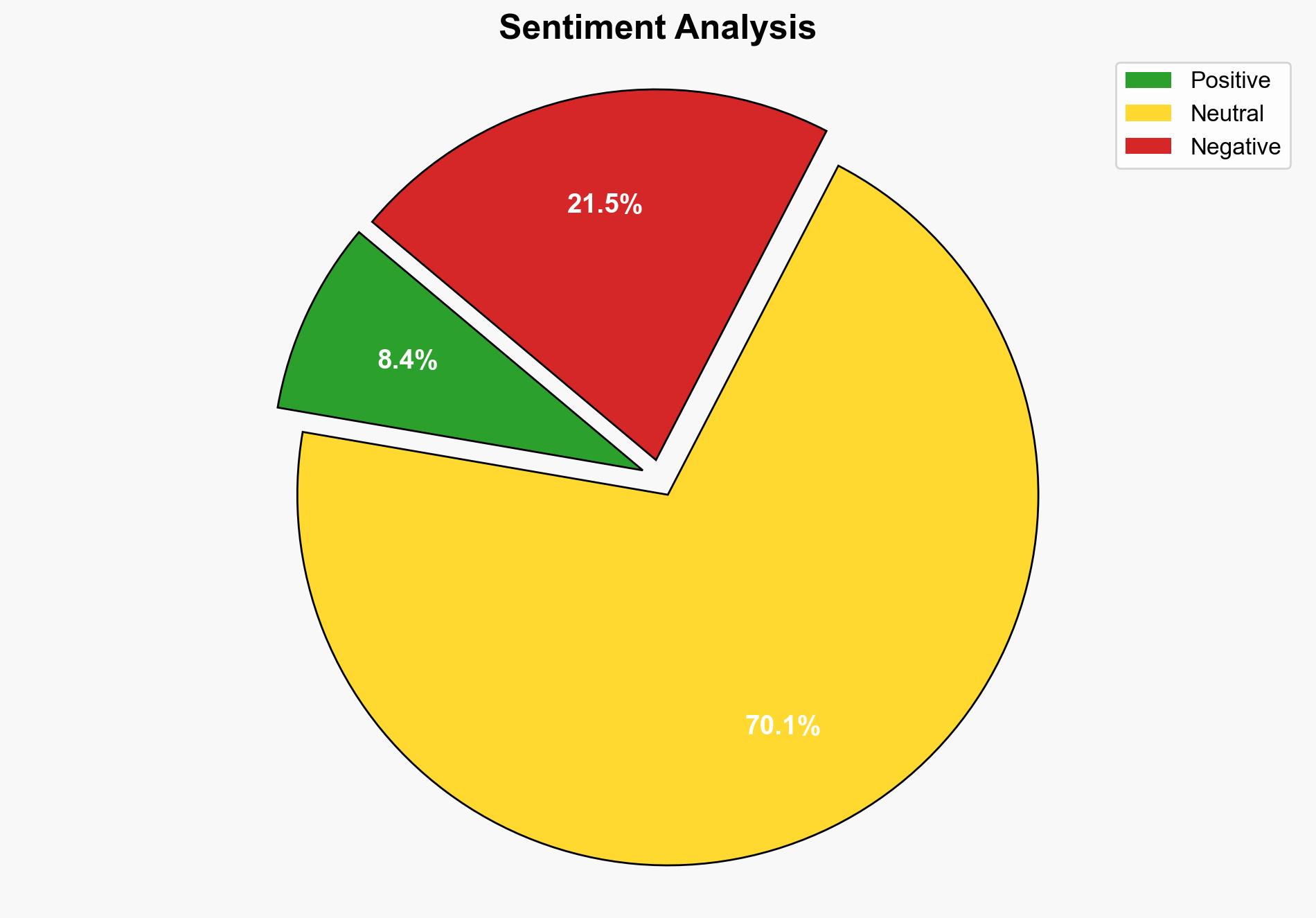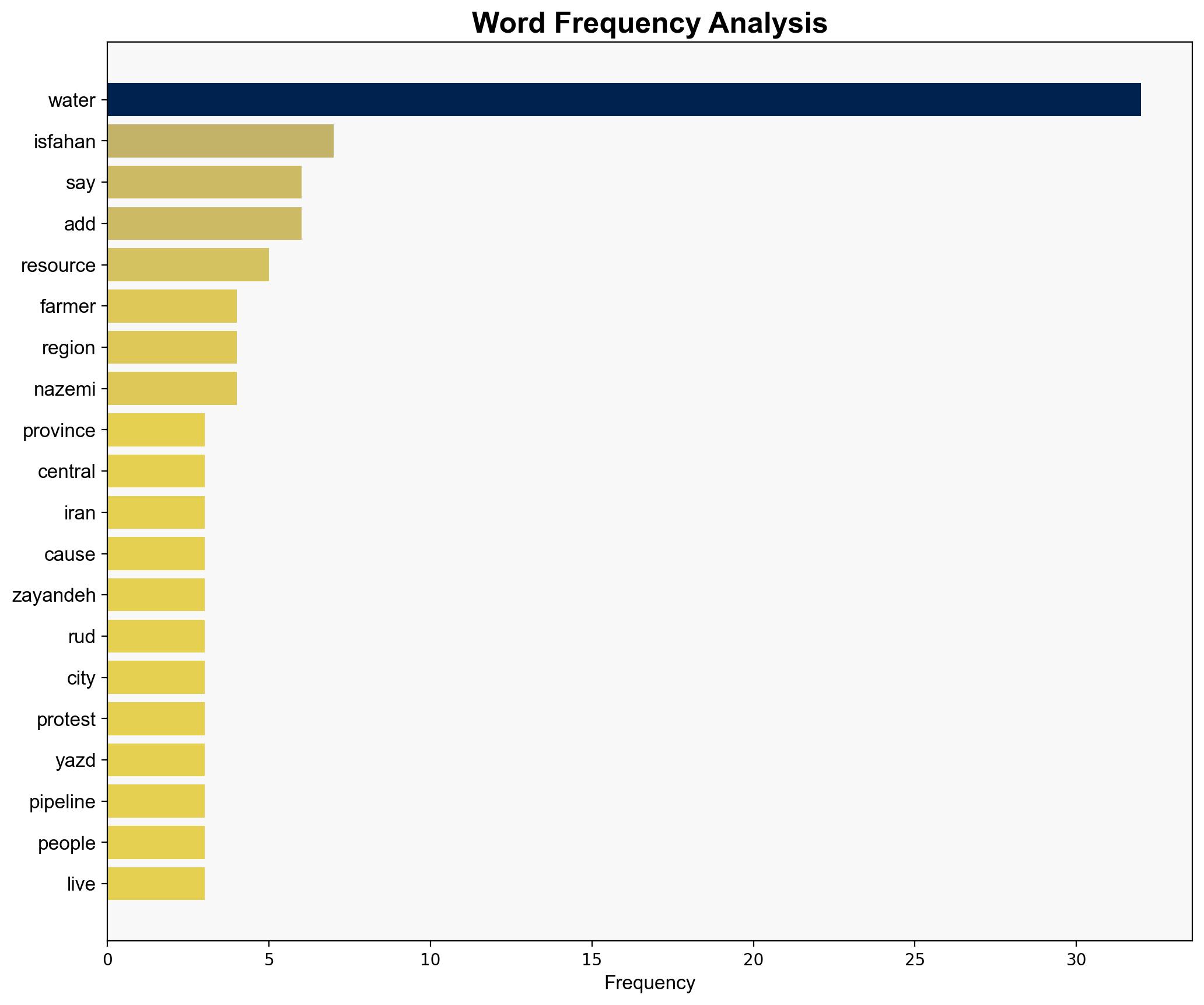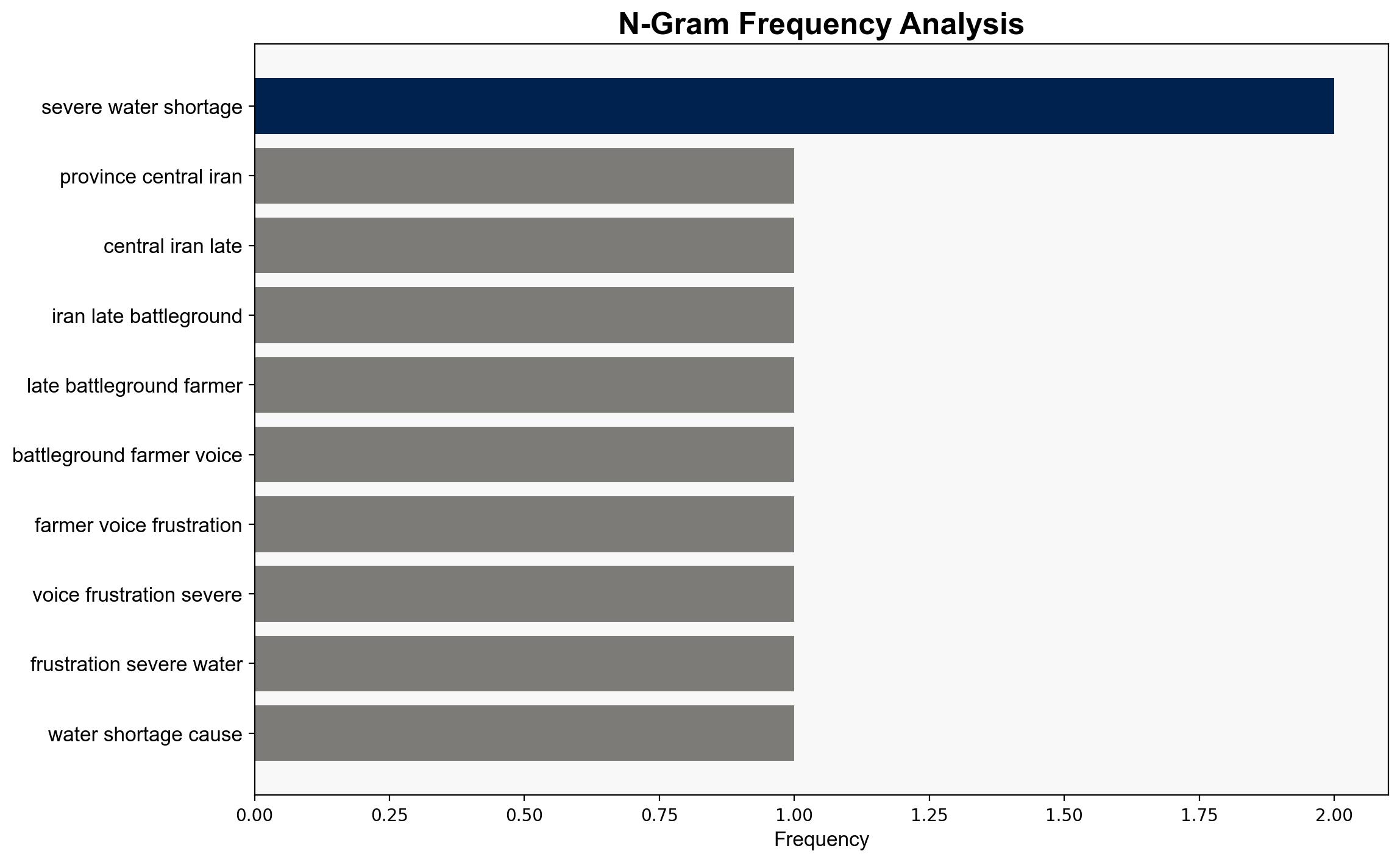Water Crisis Fuels Protests In Rural Iran Experts Warn It Could Spread – Forbes
Published on: 2025-04-11
Intelligence Report: Water Crisis Fuels Protests In Rural Iran Experts Warn It Could Spread – Forbes
1. BLUF (Bottom Line Up Front)
Recent protests in central Iran, particularly in Isfahan, have escalated due to severe water shortages exacerbated by poor management and climate change. The unrest, marked by sabotage of water infrastructure, highlights deep-seated grievances over resource allocation. The situation poses a risk of spreading unrest, similar to past events in Khuzestan. Immediate attention to water management and equitable resource distribution is crucial to prevent further destabilization.
2. Detailed Analysis
The following structured analytic techniques have been applied for this analysis:
General Analysis
The water crisis in Isfahan has reached a critical point, with farmers protesting the diversion of water to Yazd. The destruction of a pipeline underscores the intensity of local grievances. Historical patterns suggest that these protests could spread if underlying issues remain unaddressed. The central government’s prioritization of industrial over agricultural needs has fueled perceptions of injustice. This is compounded by the presence of water-intensive industries in inherently dry regions, exacerbating resource scarcity.
3. Implications and Strategic Risks
The ongoing water crisis poses significant risks to national security and regional stability. The potential for protests to spread could lead to widespread civil unrest, challenging governmental authority. Economically, disruptions in water supply could affect agricultural productivity and industrial operations, impacting local and national economies. The situation also risks international scrutiny and pressure, given the humanitarian implications of water shortages.
4. Recommendations and Outlook
Recommendations:
- Implement immediate measures to ensure equitable water distribution, prioritizing essential needs over industrial demands.
- Invest in sustainable water management technologies and infrastructure to mitigate future shortages.
- Engage in dialogue with affected communities to address grievances and foster trust.
Outlook:
Best-case scenario: Effective management and equitable distribution resolve tensions, stabilizing the region.
Worst-case scenario: Unresolved grievances lead to widespread protests, destabilizing the region and straining government resources.
Most likely scenario: Continued unrest with sporadic protests, prompting gradual policy adjustments by the government.
5. Key Individuals and Entities
The report highlights the perspectives of Ali Nazemi and Mohsen Mesgaran, who provide insights into the systemic issues contributing to the crisis. Their analyses underscore the need for comprehensive water management reforms.




